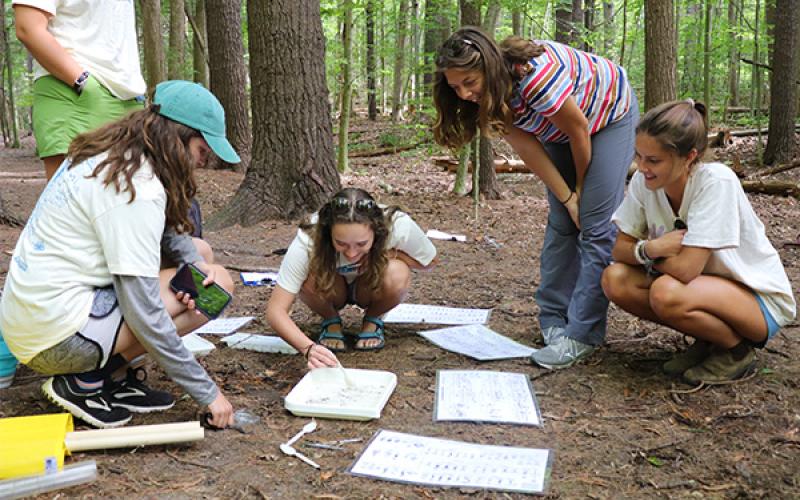
Watershed Alliance Holds First Combined Educator Training Day
In early September, Watershed Alliance, Lake Champlain Sea Grant’s K-12 educational program, celebrated a momentous achievement in its nearly 20-year history. Not only did Watershed Alliance staff gather in-person for the first time in over 18-months, but also, they hosted their first joint internship training day for University of Vermont (UVM) and SUNY Plattsburgh undergraduate student educators.
Each spring and fall, Watershed Alliance staff at both institutions hire a cohort of undergraduate student interns, known as Watershed Educators, to help with K-12 programming requests from local schools. At the beginning of each semester, these Watershed Educators receive training in stream ecology, watershed science, and teaching science as inquiry. Additionally, at the training they learn important group management skills for working with young students both in the field and in the classroom. Educators then use these skills throughout the semester to teach K-12 students about the Lake Champlain watershed out on the lake, at local stream sites, or in classrooms across the basin.
To kick off the fall 2021 programming season, educators gathered at the Burlington waterfront aboard the UVM research vessel Melosira and at a local stream site. Sixteen undergraduate student interns (10 from UVM, 6 from SUNY Plattsburgh), four Lake Champlain Sea Grant education staff, and two R/V Melosira staff came together for the training.
In the past, Watershed Alliance held separate training days for UVM and SUNY Plattsburgh educators; however, this year, education staff combined the training to allow students from different institutions to meet and learn from one another. The event gave interns the chance to meet peers from a different institution who share similar interests and helped to build comradery between the two programs.
